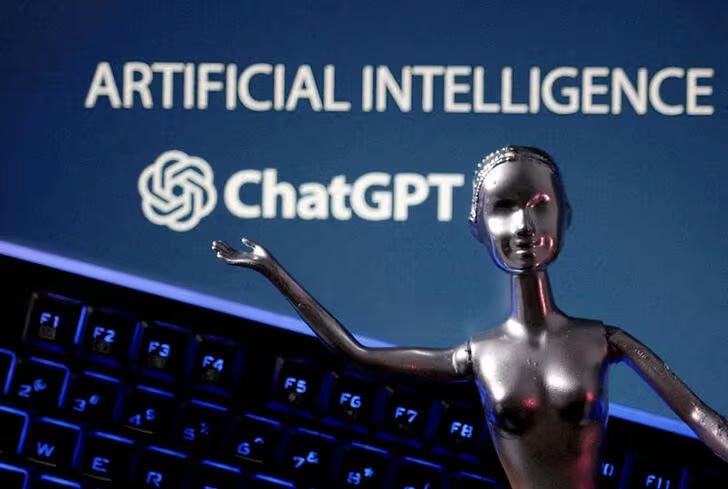Lawyers Crunch Numbers with ChatGPT, Judge Disagrees
In a shocking turn of events, a New York-based law firm faced criticism from a judge for utilizing artificial intelligence (AI) technology, specifically OpenAI's ChatGPT, to calculate and substantiate its attorney fees.
The Backstory
The Cuddy Law Firm, a prominent legal entity in New York, found itself under the judicial scanner when it decided to employ AI technology to determine its attorney fees. The firm used OpenAI's ChatGPT, a generative AI tool, as a 'cross-check' to back up its attorney fees claim in a lawsuit against New York City's Department of Education. The firm was representing a mother and her special needs child, and they had successfully procured educational resources for the student.
The Controversy: AI-calculated Attorney Fees
Typically, the plaintiff pays the attorney fees in a lawsuit. However, under the Individuals with Disabilities Education Act, the court has the discretion to award 'reasonable attorney fees' to the parent if they emerge victorious in the lawsuit. The Cuddy Law Firm, taking advantage of this provision, requested an hourly rate of $550, which was calculated based on the results generated by ChatGPT. The firm's total bill amounted to a staggering $113,500.
The Court's Response
When the court scrutinized the attorney fees claimed by the law firm, it found the usage of AI in determining the rates to be unwise. District Judge Paul Engelmayer was particularly critical of the firm's decision. In his opinion, he stated, "It suffices to say that the Cuddy Law Firm's invocation of ChatGPT as support for its aggressive fee bid is utterly and unusually unpersuasive." He considered the requested rate of $550 per hour to be 'well above' what would be deemed reasonable.
The Judge's Critique on AI Usage
Judge Engelmayer further pointed out the firm's failure to identify the data points that ChatGPT used to derive its conclusions. He questioned whether these data points were 'very real and relevant' or simply imaginary, highlighting the AI tool's propensity to fabricate misinformation. He firmly stated, "Treating ChatGPT's conclusions as a useful gauge of the reasonable billing rate for the work of a lawyer with a particular background carrying out a bespoke assignment for a client in a niche practice area was misbegotten at the jump."
The Final Verdict
Upon reviewing the case, Judge Engelmayer decided to slash the attorney fees by half. He awarded a total of about $53,050 in fees, which is roughly half of what the firm had initially sought. While the judge did not formally censure the firm in his ruling, he did advise it against using ChatGPT for future fee applications unless there was a significant improvement in the reliability of the tool.
The Broader Impact: AI in Legal Practice
This case has sparked a dialogue about the role of AI in legal practice. While AI has proven to be a valuable tool in various sectors, its application in the legal arena remains contentious. Some legal professionals have embraced AI, like Joshua Browder, CEO of law firm DoNotPay, who offered a $1 million prize to any lawyer willing to rely solely on his firm’s proprietary software for arguing a case before the Supreme Court. However, others have faced issues similar to the Cuddy Law Firm, where reliance on AI led to complications. For instance, a New York attorney with 30 years of experience was sanctioned for filing a brief that contained fictitious case citations generated by ChatGPT.
Conclusion
The case of the Cuddy Law Firm serves as a cautionary tale for other legal entities considering the use of AI in their practices. It underscores the need for transparency and accountability in AI usage, particularly in sensitive areas such as determining attorney fees. As AI continues to evolve and permeate various sectors, it's crucial to establish clear guidelines and ethical standards for its application. Only then can we harness the full potential of AI while mitigating the risks associated with its misuse.
Top 3 Lessons
1️⃣ Transparency is Gold: 🌐 In the legal game, transparency is everything. The court wasn't feeling the vibe when Cuddy Law Firm didn't spill the beans on the data ChatGPT used. If you're using AI, be crystal clear about your methods!
2️⃣ ChatGPT, Proceed with Caution: 🚦 Relying solely on ChatGPT for billing rates can be a slippery slope. The court thought it was "utterly and unusually unpersuasive." Lesson? Use AI responsibly and don't put all your legal eggs in one digital basket.
3️⃣ AI Guidelines Needed: 📜 As AI infiltrates the legal world, let's set some ground rules! The Cuddy case is a wake-up call. Establish ethical standards for AI use in law to avoid unexpected legal hiccups.
Good Reads
Apple Hit with €500 Million Fine by EU in Landmark Ruling Over App Store Practices! 🍏
Tech Titans Squad Up to Crush AI-Generated Election Deepfakes! 🤖✨



